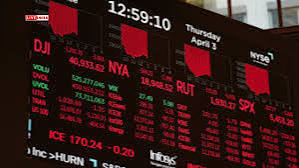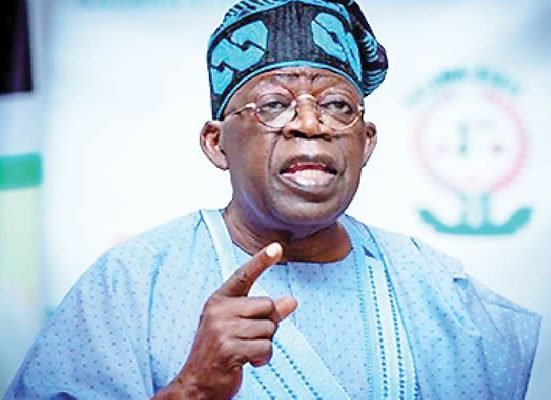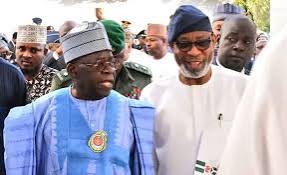In a dramatic turn of events, the U.S. stock market has experienced its worst week since the COVID-19 pandemic, with all three major indexes—Dow Jones, S&P 500, and Nasdaq—plummeting over 5% on Friday alone. This downturn follows President Donald Trump’s announcement of sweeping tariffs, including a 10% charge on goods from the UK and other nations, which has sent shockwaves through global markets. The S&P 500, for instance, lost a staggering 9.1% over the week, while the Nasdaq Composite plunged 10%, marking significant declines not seen since early 2020.
The tariffs, which began taking effect this week, have sparked fears of a global trade war, with China retaliating by imposing a 34% levy on American goods. This escalation has led to a massive sell-off, wiping out over $5 trillion in market value in just two days35. The Dow Jones Industrial Average suffered its third-largest one-day point decline on record, shedding 2,231 points on Friday1. The Nasdaq 100 entered a bear market, dropping 6.1% on the same day3. Analysts warn that these tariffs could have a persistent impact on inflation and economic growth, both domestically and internationally.
President Trump remains optimistic about the tariffs’ potential to boost the U.S. economy, despite widespread criticism from economists and investors. His stance contrasts sharply with warnings from experts like Kristalina Georgieva, Director of the International Monetary Fund, who highlighted the risks these tariffs pose to the global economic outlook. As markets continue to react negatively, investors are increasingly seeking safe havens, leading to a surge in government bond markets and a decline in oil prices. The situation remains volatile, with many calling for a reversal or negotiation of the tariffs to stabilize markets.
In Nigeria, this global economic turmoil could have significant implications for trade and investment, particularly if the country seeks to diversify its exports away from traditional markets like the U.S. and towards regions with lower trade barriers1. As the world watches the unfolding drama in U.S. markets, Nigerian businesses and policymakers are advised to monitor these developments closely and prepare for potential impacts on local economic stability.







